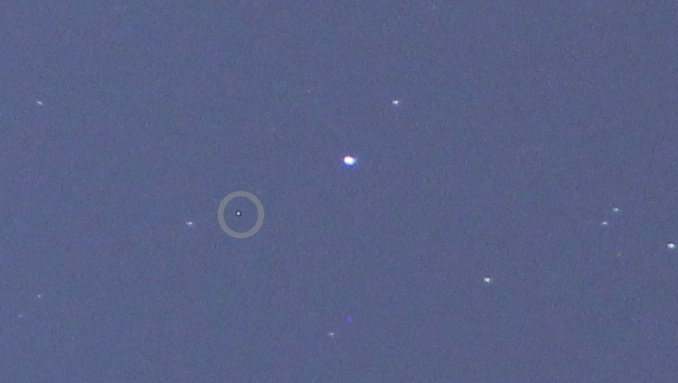I took few long exposures of the night sky yesterday. I know about the hot pixels those appear brighter with longer exposures but this seems to be something different. Can anybody tell what it is?
And this is at same position in every image and that too only in long exposure shots.

-
\$\begingroup\$ Can you elaborate on "I know about the hot pixels those appear brighter with longer exposures but this seems to be something different."? \$\endgroup\$– mattdmCommented Mar 23, 2016 at 10:27
-
\$\begingroup\$ It seems different than others mean it has a shape like bullet symbols we use for serial mastering or like a checkerboard. There's a hot pixel the blue-purple dot above a star in lower middle of image. And it doesn't show that kind of pattern as checkerboard. \$\endgroup\$– CuriousCommented Mar 24, 2016 at 6:41
2 Answers
It is a hot pixel.
The reason it makes that little checkerboard shaped mark is because of the way digital cameras use single luminance values for each pixel to create color information by filtering some pixels for red, some for blue, and some for green and then doing a process known as demosaicing to assign a luminance value for each of those three color channels to each pixel. The way demosaicing works is that the luminance value of adjacent pixels with different colored filters as well as nearby pixels with the same colored pixels are compared to determine how much of each color component the light is composed of that is striking each pixel well.
If a pixel is hot enough and the surrounding pixels are very dark, the value of the single pixel is enough to influence the value of some of the surrounding pixels.
That is a hot pixel, not something different. See Are hot pixels just one pixel? for some explanation, or What could cause this white speck in a blue sky? for an example where the pixel shows up as a distinctive "×" shape.

